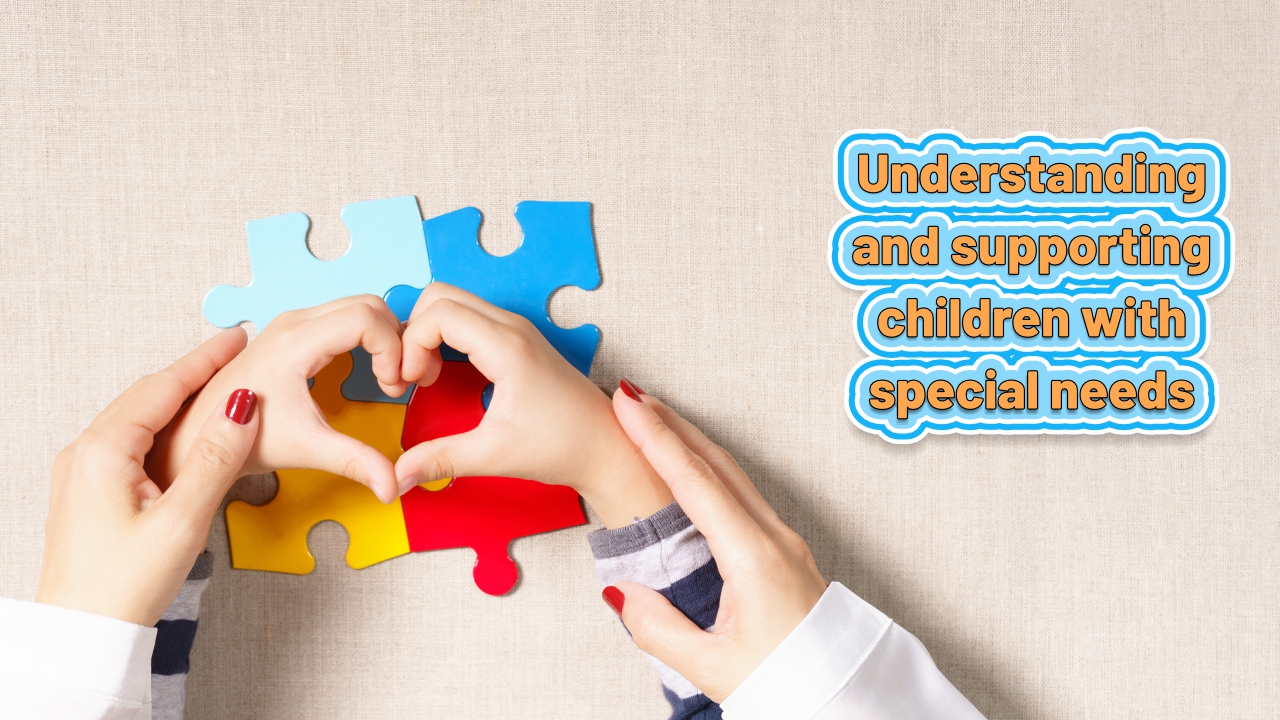Every child is unique and has specific needs while growing up. However, there may be instances where it becomes evident that a child requires extra support in areas such as social interaction, learning, and reading. Generally, these children are referred to as having “special needs.” This term encompasses a wide range of conditions, including learning disabilities, physical disabilities, autism spectrum disorder (ASD), and attention deficit hyperactivity disorder (ADHD). Understanding and supporting children with special needs is crucial for parents to ensure they reach their full potential.
This blog explores various aspects of supporting these amazing kids, from recognising the signs to offering practical help.
Recognising Signs of Special Needs
Early intervention is key for children with special needs. Here are some signs to watch for:
- Developmental Delays: Missing developmental milestones, such as rolling over, crawling, or speaking at expected ages.
- Learning Difficulties: Struggling in school and needing extra help to grasp concepts.
- Communication Challenges: Difficulty expressing themselves clearly or understanding others.
- Social Interaction Issues: Seeming withdrawn or having trouble making friends and playing with others.
- Behavioural Problems: Frequent tantrums, outbursts, or hyperactivity that is difficult to manage.
If these signs are noticed, it is important to consult a specialist or paediatrician who can assess the child’s needs and recommend appropriate support.
Help and Support for Children with Special Needs
Many resources are available to support children with special needs, including:
- Early Intervention Programs: Offering therapy, support, and guidance for children from birth to age 3.
- Special Education Services: Public schools providing Individualized Education Programs (IEPs) that outline specific accommodations and services.
- Therapies: Speech therapy, occupational therapy, and physical therapy to address specific challenges.
Organisations dedicated to supporting children with special needs and their families provide resources, information, and connections with other parents who understand the journey.
Best Practices for Supporting Students with Special Needs
Practical tips for supporting children with special needs in a school setting include:
- Teach Positive Communication: Maintain open communication with teachers and therapists, sharing information about the child’s strengths and challenges.
- Positive Reinforcement: Focus on the child’s achievements to build confidence and motivation.
- Break Down Tasks: Divide large tasks into smaller steps to help the child stay focused and feel accomplished.
- Provide Structure and Routines: Create predictable routines and a structured environment to help children feel safe and secure.
- Advocate for Your Child: Be the child’s voice, learning about their specific needs and advocating for necessary support and services.
Remedial Support for Special Needs Children
Remedial support addresses specific learning challenges and may include:
- Private Tutoring: Providing targeted support in areas where the child may struggle.
- Assistive Technology: Using tools like audiobooks, speech-to-text software, and specialized keyboards to help overcome learning barriers.
The Importance of Patience and Understanding While Dealing with Children with Special Needs
Supporting children with special needs requires immense patience and understanding. Key points to remember include:
- Every Child is Different: There is no “one size fits all” approach. Be patient and find what works best for the child.
- Celebrate Every Milestone: Celebrate progress, big or small, to motivate continued learning and growth.
- Take Care of Yourself: Supporting a child with special needs can be demanding, so it’s essential to take care of yourself to be the best support system for your child.
Supporting children with special needs is about helping them do better, not curing their conditions. Providing emotional tools to face and overcome challenges helps them grow stronger and build resilience. These incredible children have unique gifts and talents to offer the world.
Join Our Supportive Community!
Get more tips and resources for supporting children with special needs.
👉 Join Our Telegram Channel Now! Click Here

Great article! It really helped me understand the challenges of finding the right Knowing there are resources like Companions specializing in special child care is fantastic, especially for parents looking for options near me.